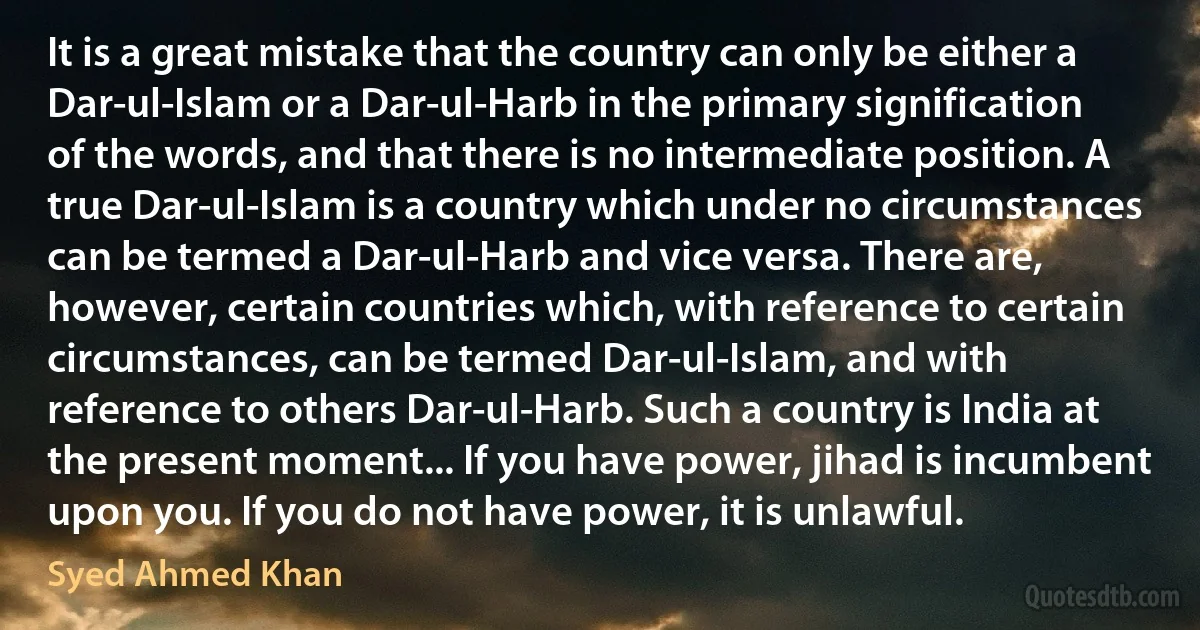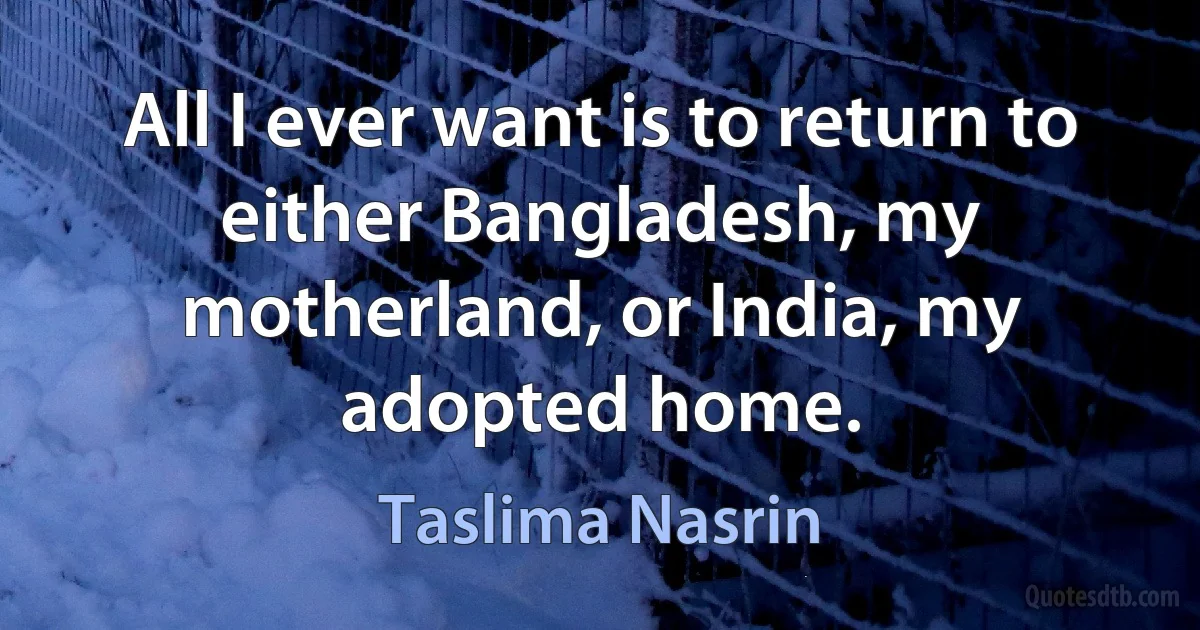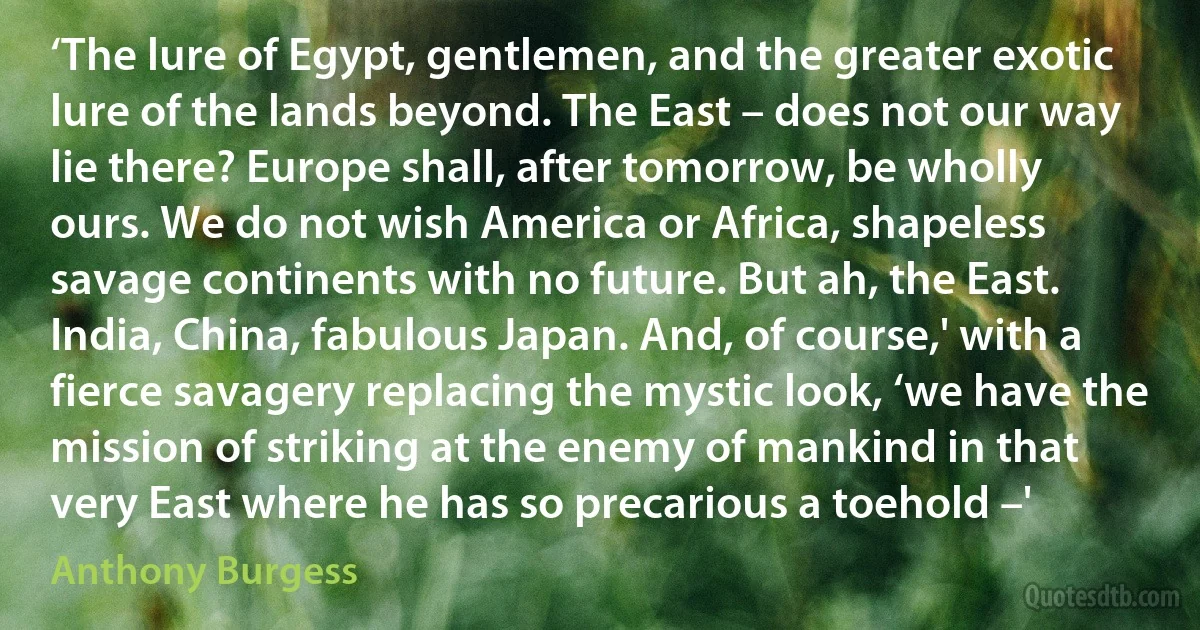India Quotes - page 14
The Head of the State in the British Constitution is a Monarch and the Crown descends according to the rules of heredity. In India the Head of the State is an elected President who holds office for a term and can be removed for misconduct in accordance with the procedure laid down in the Constitution.

Rajendra Prasad
The most vital point on which the difference between the Prime Minister and the First President of India, came to surface in a very big way was the passage of Hindu Code Bill. Before the Hindu Code Bill was to be discussed in the Parliament he had made it clear to the Prime Minister Jawharlal Nehru, that he was not in favour of the Hindu Code Bill. He also told Nehru that the present cabinet had not been elected by the people; they had no right to pass the Hindu Code Bill without the consent of the people. There had been long correspondence between the President and the Prime Minister on this very vital point of grave public importance.

Rajendra Prasad
The Historian of Shivaji at the end of a careful study of all the records about him in eight different languages, is bound to admit that Shivaji was not only the maker of the Maratha nation, but also the greatest constructive genius of medieval India. States fall, empires break up, dynasties become extinct, but the memory of a true "hero as King” like Shivaji remains an imperishable historical legacy for the entire human race. – The pillar of people's hope. The center of a world's desire, to animate the heart, to kindle the imagination, and to inspire the brain of succeeding ages to the highest endeavors.

Jadunath Sarkar
In this moment of opportunity, a common danger is erasing old rivalries. America is working with Russia and China and India, in ways we have never before, to achieve peace and prosperity. In every region, free markets and free trade and free societies are proving their power to lift lives. Together with friends and allies from Europe to Asia, and Africa to Latin America, we will demonstrate that the forces of terror cannot stop the momentum of freedom.

George W. Bush
I hadn't heard the door open, but the man was on the spot once more. My private belief, as I think I have mentioned before, is that Jeeves doesn't have to open doors. He's like one of those birds in India who bung their astral bodies about--the chaps, I mean, who having gone into thin air in Bombay, reassemble the parts and appear two minutes later in Calcutta. Only some such theory will account for the fact that he's not there one moment and is there the next. He just seems to float from Spot A to Spot B like some form of gas.

P. G. Wodehouse
We retain nothing, although we have conquered everything...France is chiefly, if not solely, to be dreaded by us in the light of a maritime and commercial power; and therefore by restoring to her all the valuable West India islands, and by our concessions in the Newfoundland fishery, we have given her the means of recovering her prodigious losses and of becoming once more formidable to us at sea...all the Spanish treasures and riches in America, lay at our mercy.

William Pitt, 1st Earl of Chatham
It's very difficult to make them understand the importance of a Guruji. In India, it's kind of more than gods and goddesses. We revere our Gurujis more than our parents, more than our family members, more than gods and goddesses. But they'll never understand. Never understand who a Guru is. There are so many differences. But when I am teaching at Rotterdam in Netherlands (He heads the World Music Department at the Rotterdam Music Conservatory), I tell each and every student-"keep your shoe out, you have to sit down. If you want to learn Indian music, you have to treat me- not like your teacher, not like your Guru, you treat me as a friend and we share our willing.

Hariprasad Chaurasia
Who can you blame, parents or their friends or the children? In India every parent wants their child to earn more money and fame than any of their peers, no one wants their child to be set on a cultural journey and do tremendous things like other artists or musicians or sportsman have done. They think the entertainment sector won't earn them any job or money. I blame the parents. They should inspire their children to pursue their interest along with the regular studies. I feel really sorry about this.

Hariprasad Chaurasia
India lives in her villages, we are told in every other sanctimonious public speech, That's bullshit. India doesn't live in her villages. India dies in her villages. India gets kicked around in her villages. India lives in her cities. India's villages just live only to serve her cities. Her villages are her citizen's vassals and for that reason must be controlled and kept alive, but only just.

Arundhati Roy
Long long ago, before the days of Islam, Sikander e Aazem came to India. The Two Horned one whom you British people call Alexander the Great. He conquered the world, and was a very great man, brave and dauntless and generous to his followers. When he left to go back to Greece, some of his men did not wish to go back with him but preferred to stay here. Their leader was a general called Shalakash (Seleucus). With some of his officers and men, he came to these valleys and they settled here and took local women, and here they stayed. We, the Kalash, the Black Kafir of the Hindu Kush, are the descendants of their children. Still some of our words are the same as theirs, our music and our dances, too; we worship the same gods. This is why we believe the Greeks are our first ancestors...

Michael Wood
What does peace mean in a world in which the combined wealth of the world's 587 billionaires exceeds the combined gross domestic product of the world's 135 poorest countries? Or when rich countries that pay farm subsidies of a billion dollars a day, try and force poor countries to drop their subsidies? What does peace mean to people in occupied Iraq, Palestine, Kashmir, Tibet and Chechnya? Or to the aboriginal people of Australia? Or the Ogoni of Nigeria? Or the Kurds in Turkey? Or the Dalits and Adivasis of India? What does peace mean to non-Muslims in Islamic countries, or to women in Iran, Saudi Arabia and Afghanistan? What does it mean to the millions who are being uprooted from their lands by dams and development projects? What does peace mean to the poor who are being actively robbed of their resources and for whom everyday life is a grim battle for water, shelter, survival and, above all, some semblance of dignity? For them, peace is war.

Arundhati Roy
East? They wouldn't know the bloody East if they saw it. Not if you was to hand it to them on a plate would they know it was the East. That's where the East is, there.' He waved his hand wildly into the black night. 'Out there, west. You wasn't there, so you wouldn't know. Now I was. Palestine Police from the end of the war till we packed up. That was the East. You was in India, and that's not the East any more than this is. So you know nothing about it either. So you needn't be talking.

Anthony Burgess
The British arrived with no intention of conquest: the East India Company had set up trading posts on the western seaboard, and its officers were called on by the native sultans to help with the putting down of rapacious river barons. The parallel with India is exact, and Stamford Raffles is a perfect analogue of Robert Clive. First came trade, then the amateur protective army, finally the flag....

Anthony Burgess
This country [India] has the best future. When it reached its summit, it was bound to come down. It has taken 2000 years. Yet, this is the only country which has not been destroyed in the world. All other civilizations have gone.... This is the only country whose civilization has survived to this day. Whether it is Egypt, Babylon or Sumeria, there is absolutely no indication of that in those countries at present.

Morarji Desai
I worked as a volunteer at that session and heard Mahatma Gandhi for the first time. I was profoundly impressed by his personality. Mahatma Gandhi was explaining his weapon of non-violent struggle for securing w:SwarajSwaraj.... Mahatma Ganndhi told his young companions – May be you don't agree today with what I say. But I am confident that within twenty five or thirty years, we will get Swaraj by this method. This purportedly proved true and just 31 years later India became independent.

Morarji Desai



